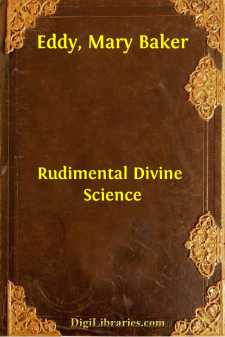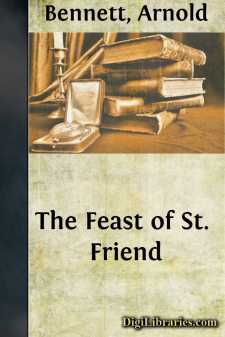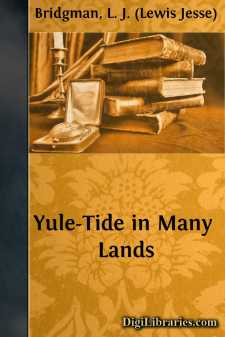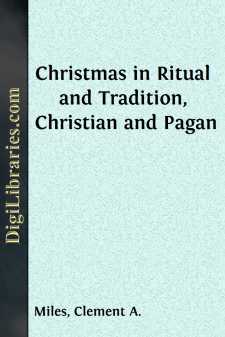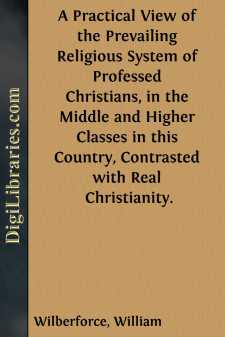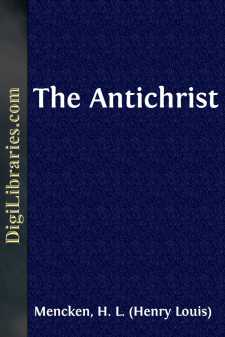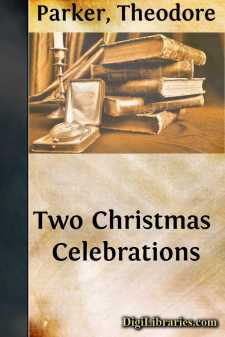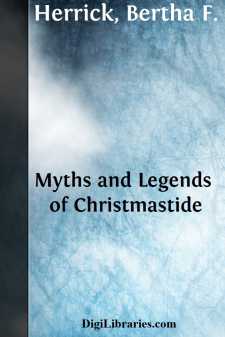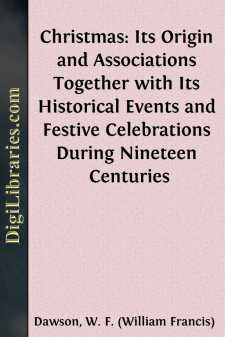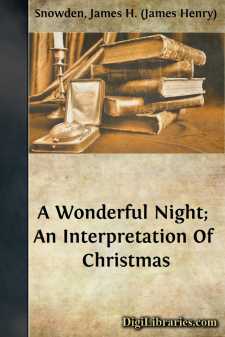Religion
- Agnosticism 2
- Antiquities & Archaeology 21
- Atheism 12
- Biblical Criticism & Interpretation 15
- Biblical Meditations 3
- Biblical Reference 1
- Biblical Studies 11
- Buddhism 8
- Christian Church 52
- Christian Education 5
- Christian Life 26
- Christianity 60
- Cults 2
- Devotional 6
- Eastern 2
- Education 4
- Eschatology 1
- Ethics 3
- General 60
- Gnosticism 1
- Hinduism 15
- History 28
- Holidays 10
- Inspirational 1
- Islam 8
- Judaism 3
- Leadership 1
- Meditations 3
- Monasticism 1
- Mysticism 11
- Philosophy 4
- Prayer 26
- Prayerbooks 5
- Religion & Science 12
- Sermons 54
- Spirituality 53
- Theism 2
- Theology 17
- Theosophy 15
Religion Books
Sort by:
by:
Mary Baker Eddy
How would you define Christian Science? As the law of God, the law of good, interpreting and demonstrating the divine Principle and rule of universal harmony. What is the Principle of Christian Science? It is God, the Supreme Being, infinite and immortal Mind, the Soul of man and the universe. It is our Father which is in heaven. It is substance, Spirit, Life, Truth, and Love,—these are the deific...
more...
by:
Arnold Bennett
THE FACT Something has happened to Christmas, or to our hearts; or to both. In order to be convinced of this it is only necessary to compare the present with the past. In the old days of not so long ago the festival began to excite us in November. For weeks the house rustled with charming and thrilling secrets, and with the furtive noises of paper parcels being wrapped and unwrapped; the house was a...
more...
CHAPTER I. YULE-TIDE OF THE ANCIENTS"There in the Temple, carved in wood,The image of great Odin stood,And other gods, with Thor supreme among them." As early as two thousand years before Christ Yule-tide was celebrated by the Aryans. They were sun-worshipers and believed the sun was born each morning, rode across the upper world, and sank into his grave at night. Day after day, as the...
more...
by:
Clement A. Miles
CHAPTER I The Origin and Purpose of Festivals—Ideas suggested by Christmas—Pagan and Christian Elements—The Names of the Festival—Foundation of the Feast of the Nativity—Its Relation to the Epiphany—December 25 and the Natalis Invicti—The Kalends of January—Yule and Teutonic...
more...
INTRODUCTION. It has been, for several years, the earnest wish of the writer of the following pages to address his countrymen on the important subject of Religion; but the various duties of his public station, and a constitution incapable of much labour, have obstructed the execution of his purpose. Long has he been looking forward to some vacant season, in which he might devote his whole time and...
more...
INTRODUCTION Save for his raucous, rhapsodical autobiography, “Ecce Homo,” “The Antichrist” is the last thing that Nietzsche ever wrote, and so it may be accepted as a statement of some of his most salient ideas in their final form. Notes for it had been accumulating for years and it was to have constituted the first volume of his long-projected magnum opus, “The Will to Power.” His full...
more...
by:
Theodore Parker
Two Christmas Celebrations. A great many years ago, Augustus Caesar, then Emperor of Rome, ordered his mighty realm to be taxed; and so, in Judea, it is said, men went to the towns where their families belonged, to be registered for assessment. From Nazareth, a little town in the north of Judea, to Bethlehem, another little but more famous town in the south, there went one Joseph, the carpenter, and...
more...
“Lo! now is come our joyful'st feast,Let every man be jolly.Each room with ivy leaves is drest,And every post with holly.Now all our neighbors' chimneys smoke,And Christmas blocks are burning;Their ovens they with bak't meats choke,And all their spits are turning.” The celebration of Christmas, which was considered by the Puritans to be idolatrous, has for many centuries been so...
more...
PREFACE. In the third quarter of the nineteenth century, it fell to my lot to write an article on Christmas, its customs and festivities. And, although I sought in vain for a chronological account of the festival, I discovered many interesting details of its observances dispersed in the works of various authors; and, while I found that some of its greater celebrations marked important epochs in our...
more...
I. An Age of Wonders e live in an age of wonders. Great discoveries and startling events crowd upon us so fast that we have scarcely recovered from the bewildering effects of one before another comes, and we are thus kept in a constant whirl of excitement. The heavens are full of shooting stars, and while watching one we are distracted by another. So frequent is this experience that our nerves almost...
more...


